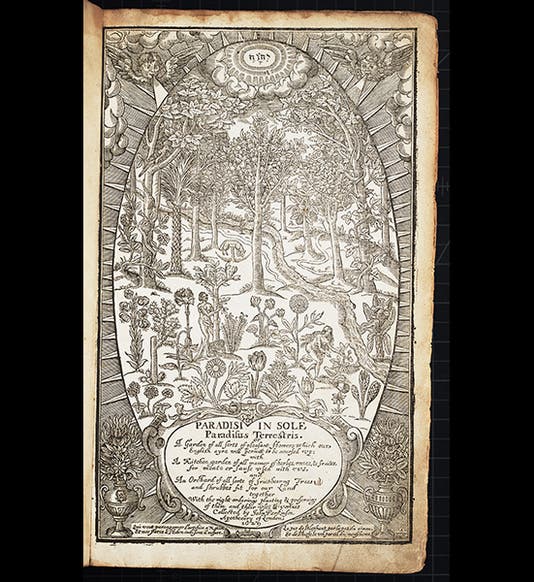Scientist of the Day - John Parkinson
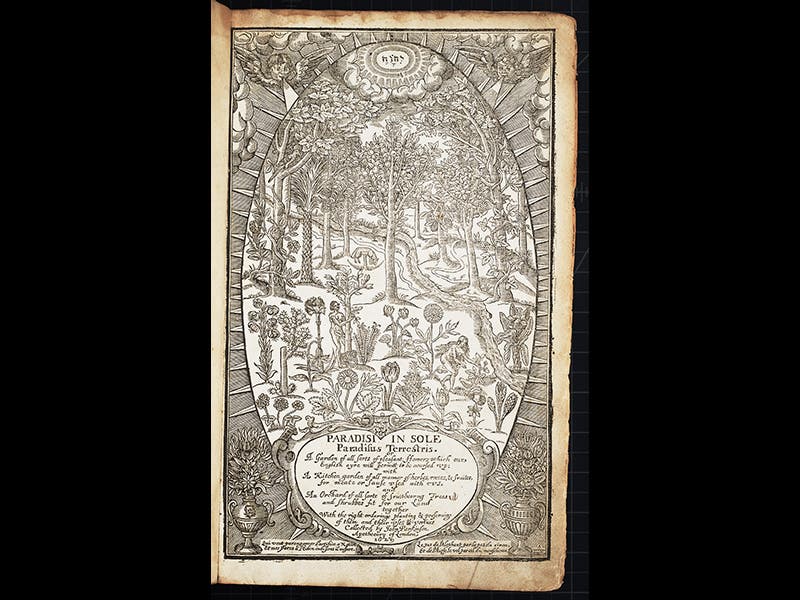
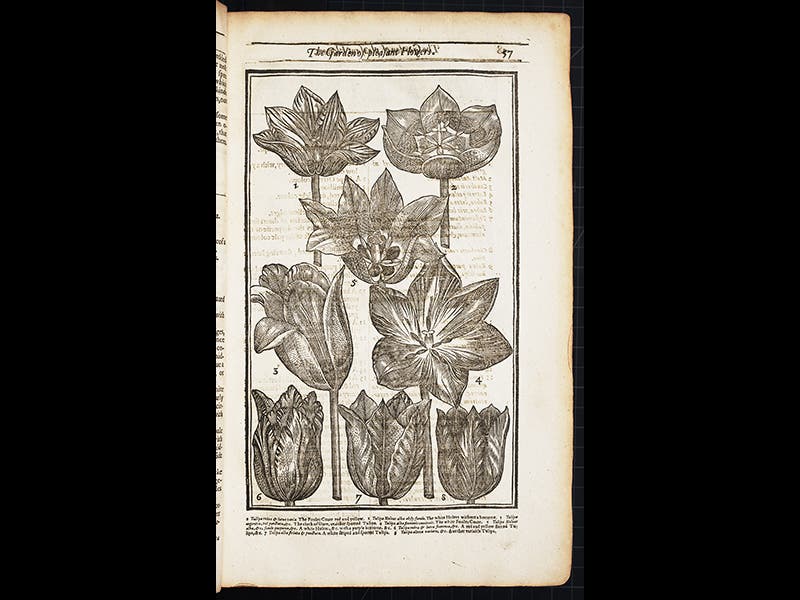
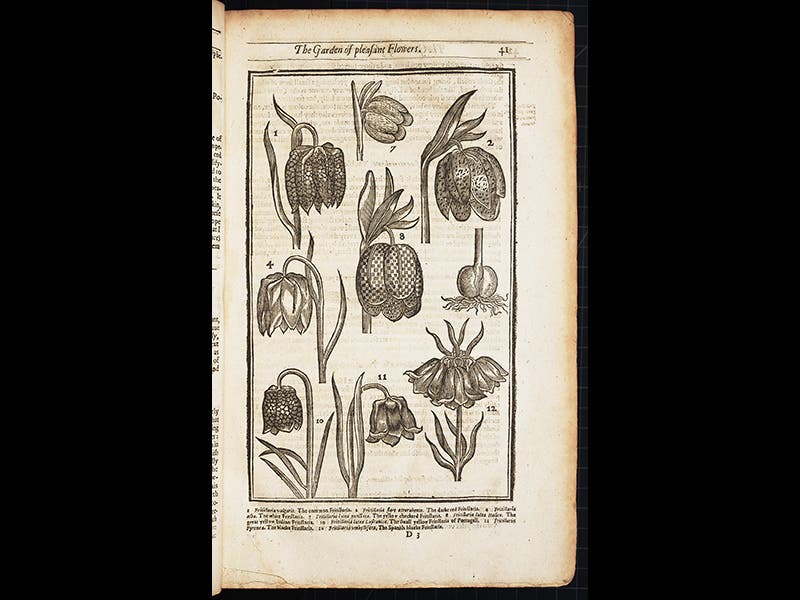
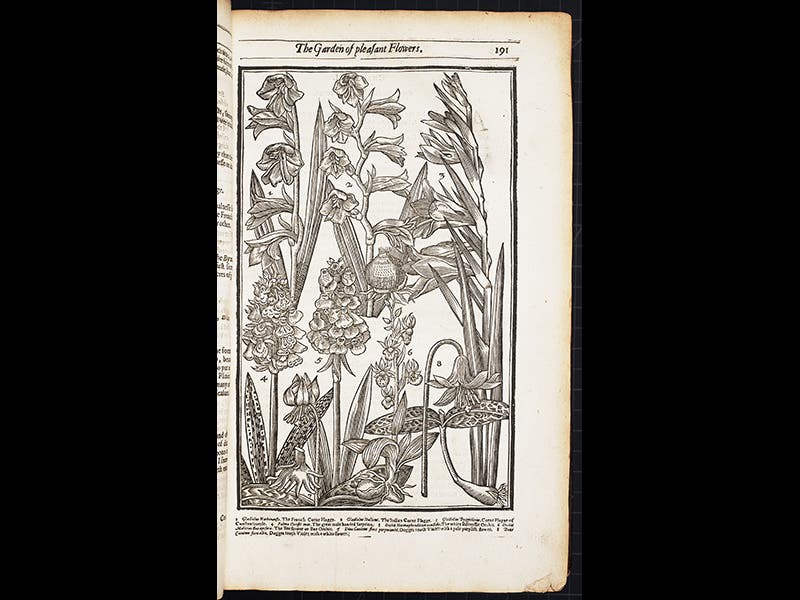
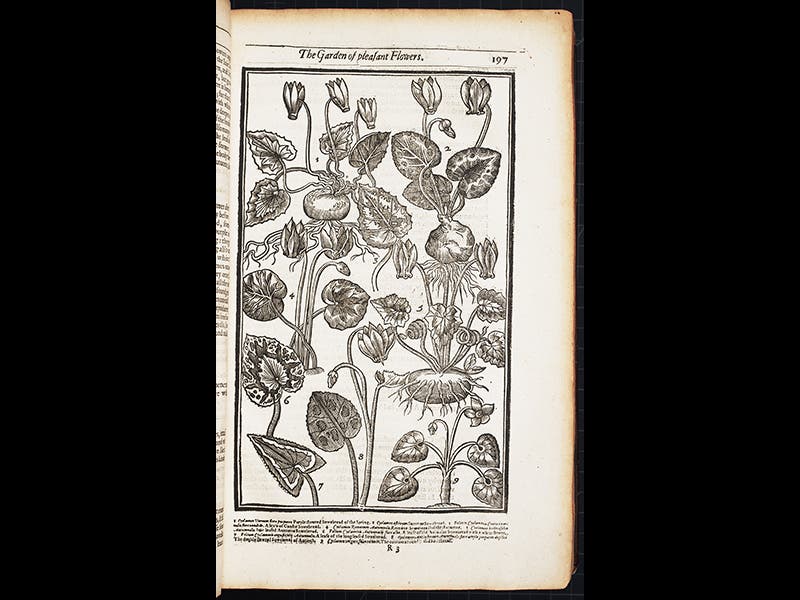
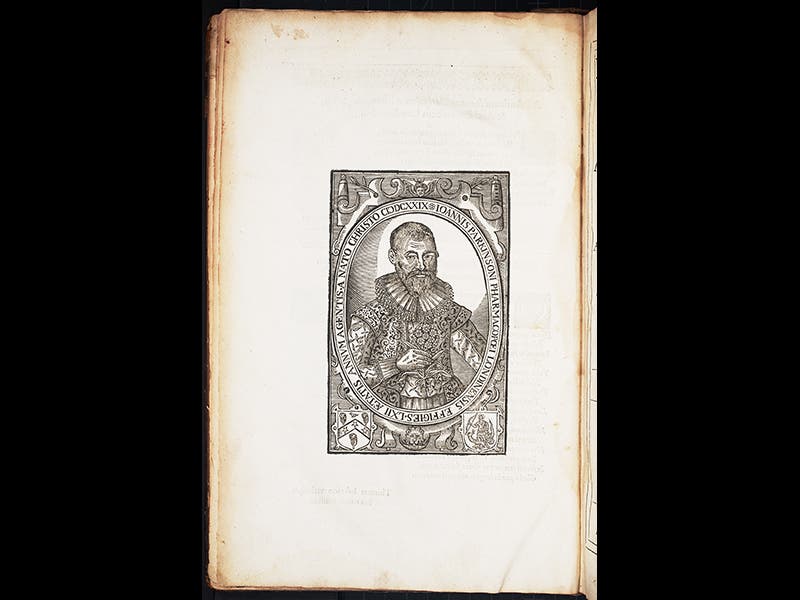
John Parkinson, an English botanist, was buried Aug. 6, 1650, at the age of about 83. He was the official apothecary to King James I and the royal botanist for his successor, Charles I. Parkinson published two botanical works that make an interesting pair. The first book, Paradisi in Sole Paradisus Terrestris (1629) is often considered the first purely horticultural book in England, meaning it is a book about gardens and flowers. Eleven years later, Parkinson published Theatrum Botanicum (1640), a massive compendium that is often called the last of the English herbals. An herbal, unlike a flora, is concerned with the medicinal properties of plants, and herbals had been the dominant form of botanical publication ever since Dioscorides in the 1st c. AD. I suppose it is not improbable that the same man could publish the last herbal and the first flora. The surprise is that Parkinson published the first flora 11 years before he gave us the last herbal. We have copies of both works in our Library, although our Paradise in Sole is a second printing (1635).
We feature today Parkinson's flora, the Paradisi in Sole. The woodcut title page is quite playful, showing, not the traditional Garden of Eden, but Parkinson's own garden, with Adam and Eve as caretakers (see first image above). Some of the flowers featured, at the front, are new introductions to England from eastern Europe and the Middle East, plants such as the tulip, fritillary, dog's tooth, and cyclamen. Nearly every plant depicted on the title page has its own section within the book; we display above woodcuts of the four plants just mentioned, in that order.
The title of the book is playful as well, since it means "Park in sun's terrestrial paradise," a pun on Parkinson's name. The book also contains a portrait of Parkinson, which we include as our last image.
Dr. William B. Ashworth, Jr., Consultant for the History of Science, Linda Hall Library and Associate Professor, Department of History, University of Missouri-Kansas City. Comments or corrections are welcome; please direct to ashworthw@umkc.edu.

